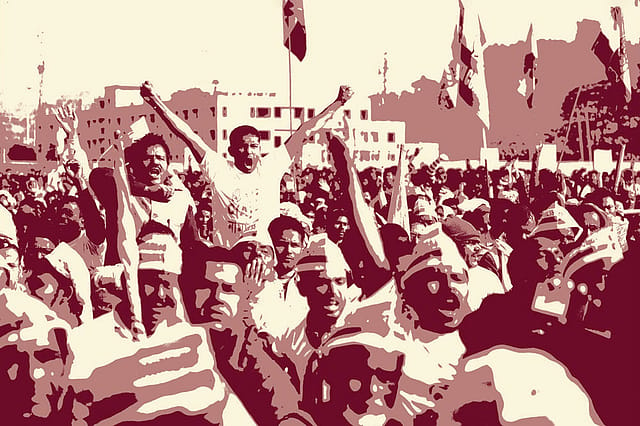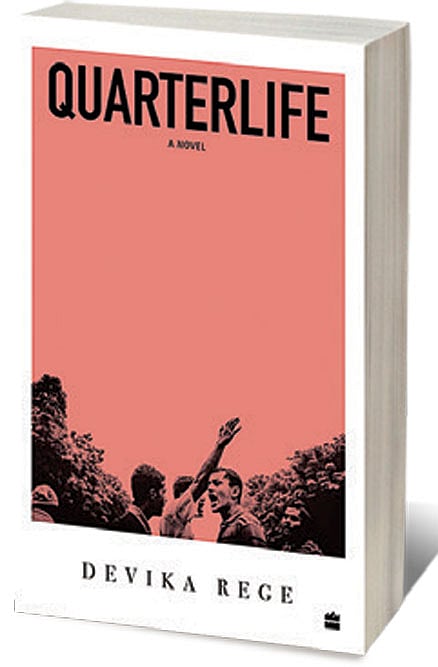Matters of the Mind

DEVIKA REGE’S DEBUT novel Quarterlife begins with a successful and very competitive NRI, Naren Agashe, finally getting a green card. Instead of rejoicing and looking forward to an even more illustrious career in the US, Naren decides to go back home to Mumbai, India. India, where a newly elected government, formed by the Bharat Party, has been promising the world to voters: a corruption-free establishment, employment, development, investments. To Naren, India’s prospects look far brighter than those of the West.
With Naren comes Amanda, a photographer nominated for a fellowship with an NGO in Mumbai. Amanda will be spending the next few months in the heart of Mumbai’s Deonar suburb, documenting the work being done by the NGO. When Naren and Amanda arrive in Mumbai, they are soon absorbed into the frenetic pace of the city. Naren gets sucked into the glittering, brash world of big business; Amanda goes to the other extreme, finding herself getting the greatest culture shock of all in grimy Deonar. Naren’s younger brother, Rohit, who runs a small film studio along with a couple of friends, ends up in a relationship with Amanda— while also going off on a solo road trip into the Western Ghats to search for his roots.
All of this might seem like a predictable tale of personal journeys, but woven into the stories of these three people (and those who surround them: friends, family, and associates) is a web of all that makes up present-day India: the many schisms, the extremes, the political climate, fraught with anger and intolerance. All these people, no matter how seemingly distant their lives may seem from the political intrigues of the state and the nation, end up ensnared in that web. Naren finds that big business must collaborate with politics in order to get even bigger. Amanda discovers the nuances of religion in India, from the Hindu-Muslim conflicts to the less apparent—to her—spectre of casteism. Rohit, making friends with a talented small-town cinematographer named Omkar, finds himself going down paths he could never have envisaged.
Openomics 2026: Continuity and Conviction
06 Feb 2026 - Vol 04 | Issue 57
The performance state at its peak
Quarterlife is one of the best character-driven novels out in India this year: this is wholly about how people think, how their perceptions shape their behaviour, and how those perceptions may change. The bulk of the story is told from the viewpoints of the three main characters, with Naren, Amanda and Rohit being the focus of alternating chapters. You see Amanda beginning to make sense of the delicate (and tense) relationships around her in Deonar. Naren, driven and ambitious, doing whatever it takes to get ahead in the rat race. Rohit, pulled and pushed between the radical Omkar on the one hand, his urban, liberal colleagues and friends on the other. The feelings, the thoughts, the inner conflicts, the character arcs, are all nuanced and very real.
In their interactions with other characters like Omkar, Manasi, Cyrus, Gyaan, Ifra and Kedar, even more thoughts and perspectives are revealed, each vivid and life-like. In one of the most impactful sections of the book, where Rege brings alive the Ganpati visarjan, she goes into the minds of many varied, even nameless characters: each gets only a paragraph or so devoted to them, but the paragraphs build up to form a searing, unforgettable view of what is probably Mumbai’s biggest festival.
Rege’s research and the thought that’s gone into this book are obvious. Quarterlife looks at varied matters: politics, business, religion, casteism, the conceptions (or misconceptions) of history and heritage. Patriarchy, women’s rights, corruption. The Bollywood-politics nexus. All, however, are woven so organically into the overall story that it rarely feels forced. This, one feels, is a reflection of reality.
Occasionally, there is a tendency to go on and on: a little tighter editing would have helped tone this down. But, on the whole, Quarterlife is a fine debut. We have much to look forward to from Devika Rege.

